Biochar
Biochar is produced from organic materials such as agricultural waste, forestry residues, and other biomass. It has been proposed as a potential tool to improve soil health and fertility in agriculture, and there is growing interest in its use in commercial farming in the UK.
Here are some key points to consider when proposing the use of biochar in commercial farming in the UK:
- Benefits of biochar: Biochar can improve soil fertility, structure, and water-holding capacity, leading to better crop yields and reduced need for fertilisers and irrigation. It can also help sequester carbon in the soil, which can contribute to mitigating climate change.
- Suitability of biochar: Biochar may be most suitable for specific soil types, such as those that are degraded or have low organic matter content. It may also be most effective for certain crops, such as those with high nutrient requirements.
- Availability of biochar: The availability of biochar in the UK may be limited, as there are currently only a few commercial producers in the UK. However, there may be opportunities for farmers to produce their biochar from on-farm waste materials, such as crop residues and woodlands.
- Costs of biochar: The cost of biochar may vary depending on the source of the feedstock, the retort production method, and the transportation costs, but if you have your own expense, it can only be minimal. It is essential to consider the potential cost savings from reduced fertiliser and irrigation use and increased crop yields when assessing the economic feasibility of using biochar.
- Potential risks: While there is little and NO evidence of adverse environmental impacts of biochar, it is essential to consider the potential risks associated with its use, such as the impact on soil microorganisms and the potential for heavy metals or other contaminants to be present in the wood feedstock.

Biochar in Cattle Feed
A relatively new concept, and there is currently limited research on its efficacy and safety. While biochar has been shown to have several benefits for soil health and crop production, its use in animal feed is still being explored.
In the UK, the use of biochar in animal feed is subject to regulation by the Food Standards Agency (FSA) and the European Union. The FSA has not yet approved the use of biochar in animal feed, and the European Union has only approved the use of certain biochar as feed additives for poultry and pigs. However, there is ongoing research on the potential benefits of using biochar in cattle feed. Some studies have suggested that adding small amounts of biochar to cattle feed can help improve digestion and nutrient uptake, which could lead to improved animal health and performance. Other research has suggested that biochar may help reduce the amount of methane cattle produce, which could help reduce greenhouse gas emissions from agriculture.
Before any new feed additive can be approved in the UK, it must undergo a rigorous evaluation process to ensure it is safe and effective. This process involves testing the additive on animals to assess its safety and efficacy and evaluating any potential environmental or health risks associated with its use.
In summary, while the use of biochar in cattle feed is still being explored, it is not currently approved for use in the UK. Any potential use of biochar in animal feed would need a thorough evaluation to ensure that it is safe and effective.
Diversification in the UK market and the benefits in farming when manufacturing biochar and BBQ charcoal out of their own woodland and wood waste.
Diversification in the UK market can bring several benefits to farming, especially when manufacturing biochar and BBQ charcoal from their own woodland and wood waste.
Here are some potential benefits:
- Additional revenue stream: By diversifying into biochar and BBQ charcoal production, farmers can generate an additional revenue stream that is not dependent on traditional farming activities. This can help to mitigate the risks associated with volatile commodity prices or weather-related crop failures.
- Sustainable use of resources: Using wood waste and woodland to produce biochar and BBQ charcoal is a sustainable use of resources, reducing the amount of waste that would otherwise go to landfill and providing an alternative to fossil fuel-based charcoal.
- Soil improvement: Biochar is a form of charcoal used as a soil amendment to improve soil health and fertility. It can help to retain nutrients and moisture in the soil and promote the growth of beneficial soil microorganisms. By producing biochar on their farms, farmers can improve their soil health and reduce their reliance on expensive fertilisers.
- Carbon sequestration: Biochar production involves heating wood waste in a low-oxygen environment, which results in the carbon in the wood being converted into a stable form that can remain in the soil for hundreds or even thousands of years. This can help to sequester carbon and mitigate the effects of climate change.
- Marketing advantages: There is growing consumer demand for sustainably produced and locally sourced products, including biochar and BBQ charcoal. By producing these products on their farms, farmers can tap into this market and differentiate themselves from competitors.
This diversification into the production of biochar and BBQ charcoal can bring several benefits to farmers in the UK, including additional revenue streams, sustainable use of resources, soil improvement, carbon sequestration, and marketing advantages.
Research and knowledge sharing: Further research is needed to better understand the optimal application rates and methods for biochar in different soil types and for other crops. Knowledge sharing and collaboration between researchers, producers, and farmers can help ensure that biochar’s benefits are realised in commercial farming in the UK.
I cannot provide an exact estimate of the potential for producing biochar on UK farms, as this will depend on a range of factors, such as the availability of suitable feedstocks, the cost of production, and the demand for biochar.
However, there is growing evidence to suggest that there is potential for producing biochar on UK farms, mainly from agricultural waste streams such as straw, perhaps manure, and waste crop residues. According to a report by the UK Biochar Research Centre, there is potential to produce up to 20 million tonnes of biochar per year from agricultural waste in the UK.
In addition to agricultural waste, there may be opportunities to produce biochar from other sources, such as forestry residues and municipal waste.
However, the economic feasibility of producing biochar from these sources will depend on various factors, such as the availability and cost of feedstocks, the cost of processing, and the market demand for biochar. While there is potential for producing biochar on UK farms, further research and development will be needed to fully understand the potential benefits and drawbacks of this approach and its economic viability, has said previously.
Products

Biochar is a type of charcoal produced from biomass and used as a soil amendment in agriculture. Wood-based biochar is a common type of biochar.
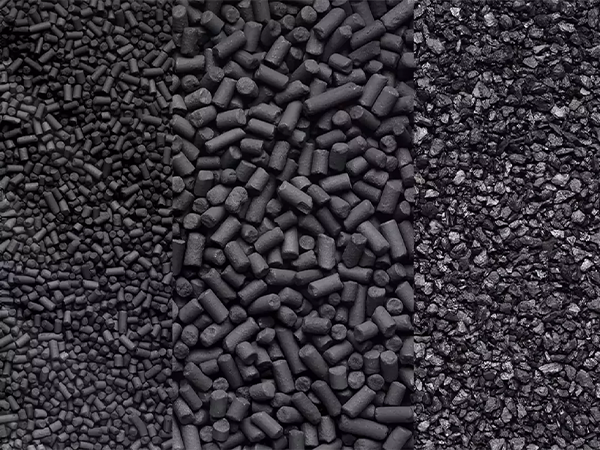
Activated carbon is a highly porous form of carbon with many applications, including water purification, air purification, and chemical processing.

Carbon Black is a form that is produced by burning hydrocarbons, such as natural gas or petroleum, however, it can also be made from wood waste via pyrolysis.
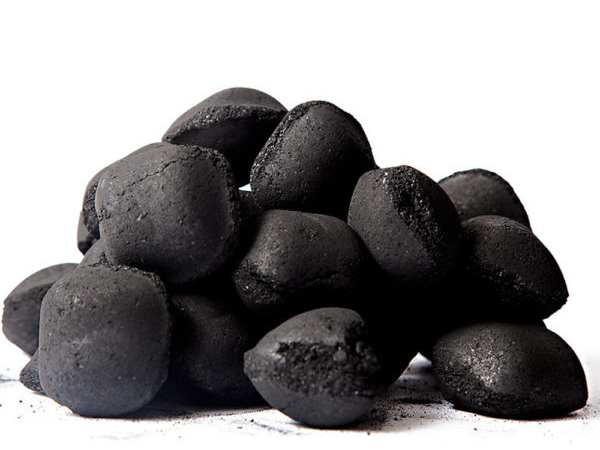
Charcoal briquettes are a type of fuel made from charcoal and used for cooking and heating. Wood waste can be used as a raw material for producing charcoal briquettes.
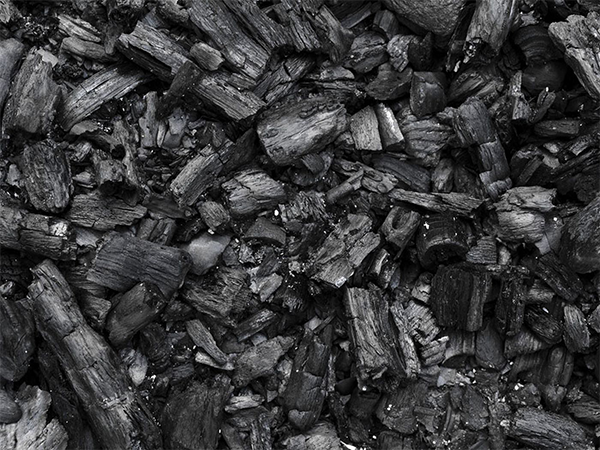
BBQ charcoal is a popular fuel source used for grilling and cooking food outdoors. It is made from wood that has been burned in the absence of oxygen, creating a lightweight and highly porous material.
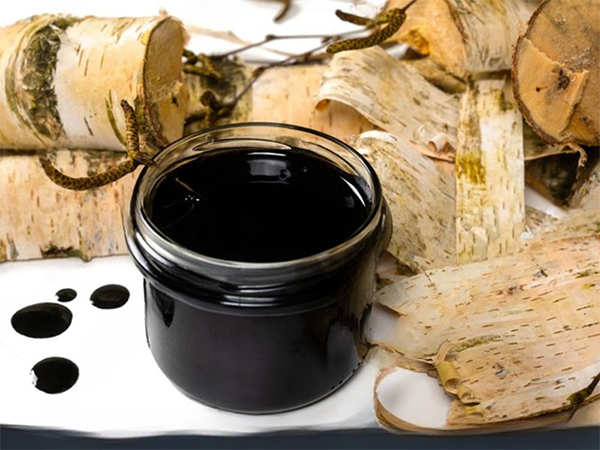
Wood tar is a dark, sticky substance that is derived from the heating and distillation of wood. It is commonly used as a traditional preservative for wood and as a natural adhesive in construction.
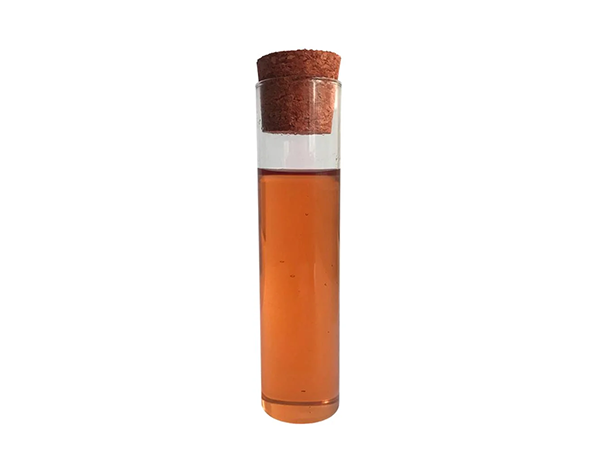
Wood vinegar, also known as pyroligneous acid, is a by-product of wood carbonisation that has many applications in agriculture and industry.

Smoking water is used in cooking to add a smoky taste to dishes. It is produced by cold smoking, which involves exposing water to smoke for an extended period of time.
Find Out More
If you would like more information, provide your details below and we’ll get back to you ASAP!